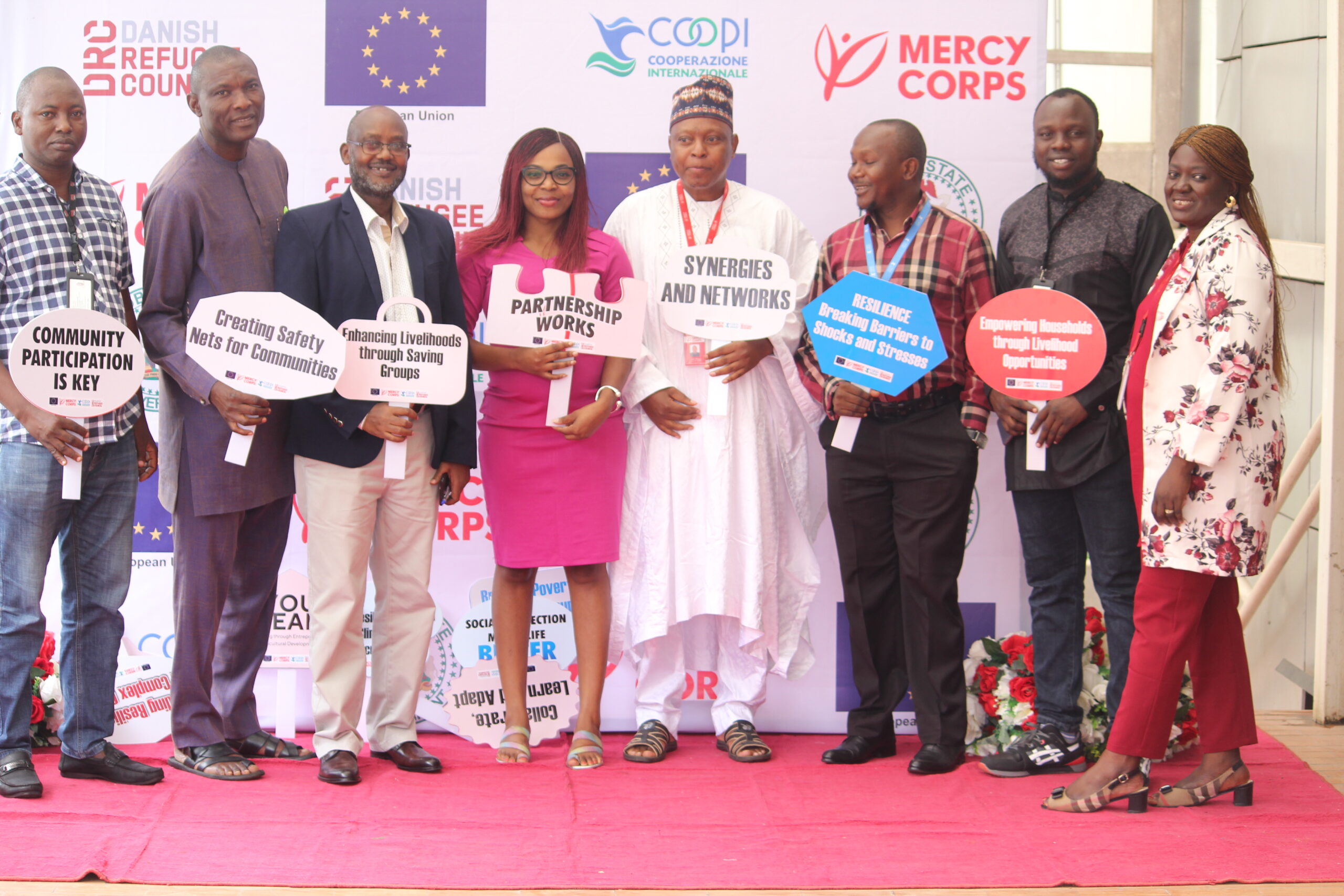Over 33,000 poor and vulnerable persons in Yobe state have received cash support under the European Union funded Building Resilience in Complex Crisis (EU BRICC) Programme.
This was disclosed at the closeout of the programme organised by Mercy Corps and consortium partners, Danish Refugee Council (DRC) and Cooperazione Internazionale (COOPI) on Thursday in Abuja. The project was implemented in Yobe state in 30 communities across 6 LGAs of Damaturu, Potiskum, Geidam, Gulani, Yunusari, and Gujba.
Mercy Corps notes that the humanitarian crisis in the Northeast remains one of the most severe in the world, with Yobe being one of the most affected. The protracted conflict has weakened state systems and left communities to face aftershocks, according to the organising; hence, houseeholds were unable to meet their basic needs, with limited access to economic opportunities.
The EU BRICC programme in collaboration with the Yobe state government and the private sector worked to address many of these aftershocks. This was done using a multi-sectoral intervention and graduation approach consisting of unconditional and conditional cash transfer, financial inclusion, agriculture, social cohesion and asset, youth livelihood, and social protection,” Mercy Corp stated.
Speaking on the success of the programme, BRICC Program Director, Freeman Muleya, said: “As of the project closeout in July, over 33,000 poor and vulnerable households have received unconditional cash support, with 281 saving groups established. In addition to 9,000 smallholder farmers trained and supported on climate-smart agriculture, 6000 youths received vocational, entrepreneurship skills training, and cash grants to start up new and expand existing businesses.”
“We also worked with the private sector, MTN, Access Bank, NAGIS and Yobe Micro Finance Bank in delivering cash grants to youths. The bank facilitated market linkage for youth to access start up kits at reasonable prices,” Muleya added.
Ndubisi Anyanwu, Mercy Corps Nigeria Country Director stated that one of the impacts of the project was the support to Yobe in the development of its social protection policy. He said, “Social protection is one of the core pillars for recovery. It provides a guideline for how the government can address the basic needs of its vulnerable dependents.
“With this policy, key interventions in health, food security, education, economic empowerment, and financial support can be implemented by the state with support from partners. The final copy of the policy is with the government, which we hope will be signed off by the Executive Governor soon.”
Bukar, one of the BRICC participants, said, “I was staying in Damaturu before I retired to Murfa. Since I have been staying there for 5 years, I haven’t been able to buy a fowl. With BRICC support, I now have a livestock business and my wife’s business is running”.
“Since I started the savings and investment association, I have gone into business and now sell seeds. I and other women also bought a cow to rear,” Another participant, Mallum says of BRICC support.
The European Union’s goal for the sustainability of intervention projects is that government institutions are strengthened to continue to deliver life-changing interventions such as those implemented by BRICC. To this end, the National Directorate of Employment (NDE), State Operations Coordinating Units (SOCU) under the Ministry of Budget and National Planning, and Yobe State Agricultural Development Programme under the Ministry of Agriculture, received capacity building to sustain important interventions from the project.
The EU has expressed readiness to work with the governments and other partners to address the challenges faced by the people who have been affected by the insurgency in the North-East.

